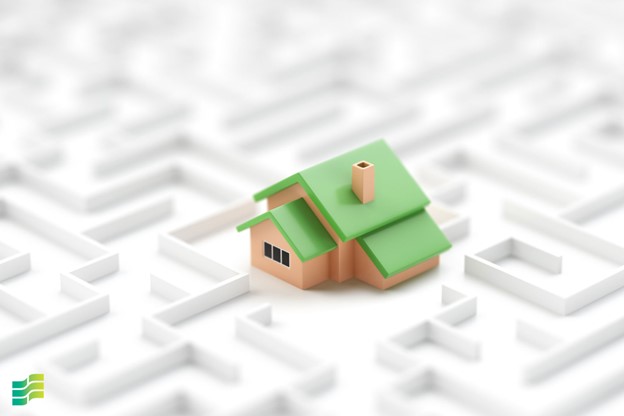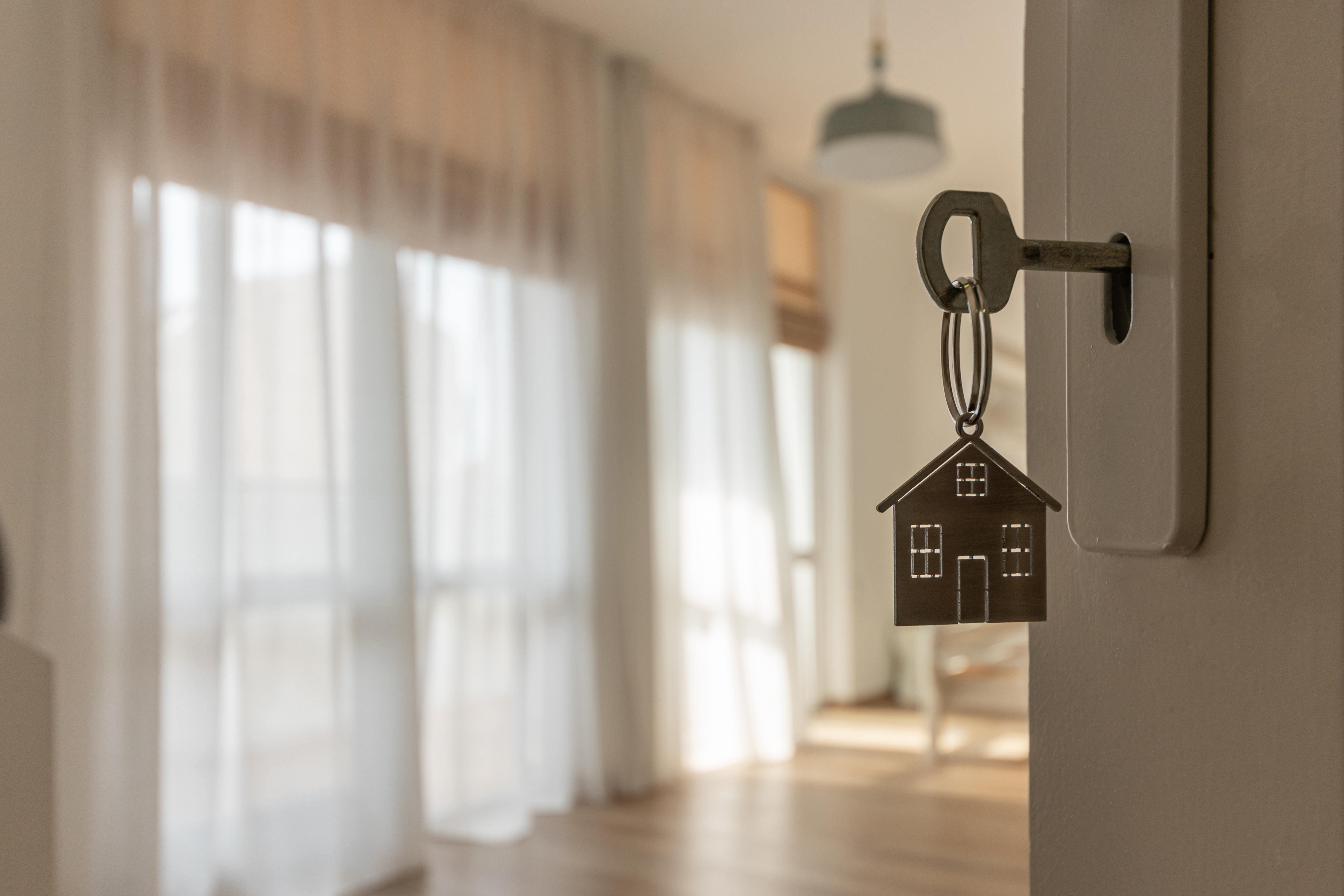Perfect Your Retirement Strategy: Choosing Plans, Funds & More

 Peter Park
Apr 06, 2023
Peter Park
Apr 06, 2023
SVP, National Sales Manager-Mortgage Banking
Thinking of making a move? You’re not alone. The last few years have seen many Americans choose to swap their current home for a new one for a number of reasons – a growing family, trading down, job transfer, remote work, falling in love with a neighborhood, wanting to be closer to schools or town or family. Whatever your motivation, it’s exciting to imagine yourself in a new place. But getting there takes time and planning. Because when you already hold one mortgage, there’s a lot to consider when getting a second loan or securing alternate financing for a new home.
With the right upfront research and a bit of luck, you may be able to smoothly transition from your old mortgage to the new one with little gaps or overlap. However, as the well-known idiom goes, hope for the best but prepare for the worst. This article will help you do just that by explaining what to expect when trying to qualify for a new home’s mortgage before you sell your current house, as well as alternative solutions.
While the record-breaking real estate market brought on by the pandemic has softened some, it’s still moving quickly – so you need to be ready to jump.

Preliminary Step - Get Real About Your Finances
Know what you can realistically afford and whether you could handle the risk of paying two mortgages.
Selling. Buying. Moving. These are all stressful, but, by the end of the process, your new home will make it all worthwhile. But do yourself a favor and get as organized and buttoned up financially as you can to reduce stress, avoid complications and look more attractive to lenders. Because when you find “it” – the home you just have to have – you don’t want to miss out.
Financial factors to take into consideration when getting pre-approved for a new mortgage prior to selling your old house:
Need help figuring out what your mortgage payment could be? Check out Bank of Hope’s Mortgage Calculator.
Financial questions to answer if getting your mortgage before selling your old house:
Diving deeper into these individual answers can influence how much money you put toward your new mortgage and how much you set aside to cover your old house’s loan payments and expenses. It can also shape your asking price—if you don’t think you can sustain two mortgage payments for a prolonged period, you can talk with your realtor about lowering the initial price so it’s particularly appealing to buyers.
Different Strategies for Timing Your Old and New Mortgages
Sell Your Old Home Before Getting a New House & Mortgage
Selling your old home prior to acquiring a new mortgage may make the loan application process easier and will help you avoid scenarios during which you pay two mortgages at once. However, it’s not entirely without its inconvenience or risks.
Pros of selling your house prior to acquiring a new mortgage:
Cons of selling your house prior to acquiring a new mortgage:
When is this the best scenario: Selling your house prior to acquiring a new house and mortgage makes sense when there are ample properties for sale, making it a buyer’s market. During such situations, the homes tend to sit on the market for longer, making it harder to predict how long it will take to close. On the flip side, once you have the assurance that comes with having sold your home, you should be able to swiftly find your ideal home and acquire the new mortgage, meaning that you won’t need to be “un-housed” for very long.
Get Your Next Mortgage and Home Prior to Selling Your Last Property
Maybe you’re just ready to move. Or you have to start a job in a new town by a certain date. Could be you’ve found that once-in-a-lifetime home and just have to act on it. Getting a new mortgage prior to selling your house can simplify processes like moving, as well as eliminate all pressure to find a home ASAP (in order to avoid living out of a hotel for a prolonged period). However, this situation only works if you have the financial means to potentially cover two mortgages at once.
Pros of selling your house after acquiring a new mortgage:
When is this the best scenario: Acquiring a new mortgage prior to selling your house and paying off your old loan is contingent upon having a sizable amount of cash on hand to cover the possible expenses referenced above. It’s also advisable when confronting a seller’s market, such as the one in 2020 and 2021. During this time, buyers often faced multiple bids for the same house (many over the asking price), making it much more difficult to buy a home. Buying a property before selling your previous one ensures that you won’t face the nightmare of being without a house, entirely.
An important note about mortgage recasting:
Mortgage recasting is common for individuals who choose to take on a new house and mortgage prior to selling their old one. Once they sell, they can use the profits to make a large, lump-sum payment toward their mortgage principal. The lender will then do a loan recasting or re-amortization that will lower the monthly payment, since they’ve now reduced the principal. However, the interest rate and term will remain the same. While mortgage recasting doesn’t often cost that much to set up (think of what you will save overall), not every lender offers this option.
Sell and Buy at the Same Time
Buying and selling a house at the same time is the dream. During the pandemic, there were many stories of people buying/selling in a matter of weeks, or less. Other times, though, all the planning and wishing in the world can’t make the transition happen smoothly, and you may find yourself unexpectedly facing one of the above scenarios.
While the goal is to close on both houses on the same day, or within days, there are things you can do to protect yourself from the ebb and flow of the real estate market.
Make a Contingency Offer: Found your dream home and have to sell your current home to finance it? The good news is, once your offer is accepted, you can put this reality in writing as a contingency clause (signed by both parties) to the sale and purchase agreement.
Pros of contingency offers:
Cons of contingency offers:
Agree to a Rent or Lease-back Agreement: If timing is an issue, this option could really help both the buyer and seller out. Take note, these agreements are usually short, around 30 days, and are paid in a lump sum.
Financing Options for Purchasing a New Home
Before you enter into any financial agreement, be sure you have found the right loan for you. One where you trust the lender, feel confident you can make the monthly payment, and the timeframe for loan repayment works for your future planning. In today’s market, there are several loan options for funding a new home purchase.
1. Second Mortgage: Your current home can be a great resource when figuring out how to afford a new home. Here are two ways to tap the accrued equity and leverage its value. Both give you access to the funds you need for a down payment and closing costs, while waiting for your current home to sell.
2. Bridge Loan: Just as it sounds, this temporary loan covers the gap between buying your new home and selling your current one. It helps avoid having to make a contingency offer and gives you the money for the down payment and closing costs. Payments won’t start until after you sell your current home, and you can pay off the loan with the proceeds if you choose.
3. Low Down Payment Loan: Several federal government programs offer low down payments to qualified buyers that could be easier on your budget. Many are designed to help first time buyers, but can also be used for second home purchases.
Additional Tips for Buying a Home
Research the Current Market
The more you know the better you can plan ahead
Selling a home is such a personal journey. You know your home's emotional value to you, but getting a firm grasp on its market value is all important. If you want a smoother selling/buying process, it’s beneficial to be as up to date on the market as possible and aware of all your financing options.
Do upfront research into what’s available: Whether you’ve found that next dream home or not, take some time to see what’s happening where you live now and where you want to buy next. A realtor’s experience can be invaluable here, but you can also do the legwork yourself.
Don’t go with the first lender you find: When you’re ready, compare mortgage lenders and shop around for the loan that’s right for you. See what your options are and get several quotes, and keep in mind that you don’t have to use the same lender that holds your current mortgage. Options include banks, credit unions, online lenders or mortgage brokers.
Figure Out Your Ideal Timing
While you might have the best master plan in mind for selling your home and then buying, life has a way of mixing things up. So while you might want to be in a new home to enjoy the summer, or by the fall so kids can be situated to start school, be prepared to have your timing pushed back. From getting your house market-ready to listing it and going through showings and open homes (plus added time for accepting offers and then closings) the full process can be several weeks or longer. You also need to factor in time to find, bid on and secure your new home – and move! While spring and summer are typically great times for buying and selling homes for maximum value, holding off to the fall might make more sense for your schedule.
Market Watch
As of January 2023,
homes spent an average of
75 days on the market.
Source: Fred Economic Data
Found the Perfect Home?
Find the Perfect Mortgage! Close a Bank of Hope mortgage in as little as 30 days!*
Bank of Hope's Mortgage Banking Division has the right loan for your needs.
See current mortgage rates and explore our fixed- and adjustable-rate programs. Our friendly and experienced staff is ready to answer all your questions and help you find a loan that fits best.
Reach out today:
Email us today and a representative will get back to you shortly


